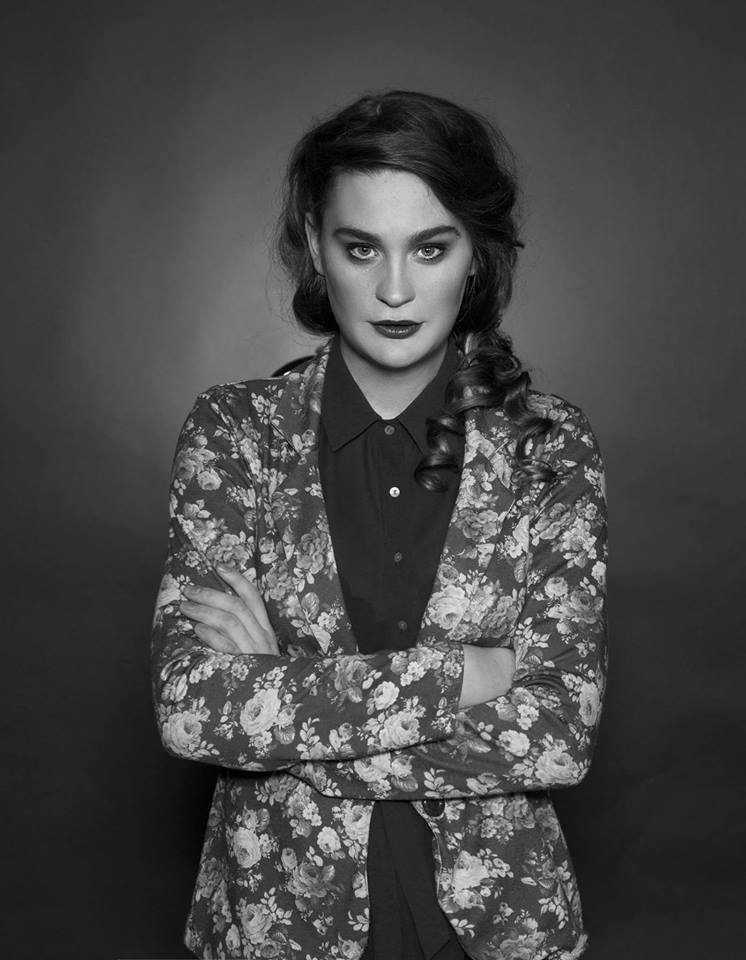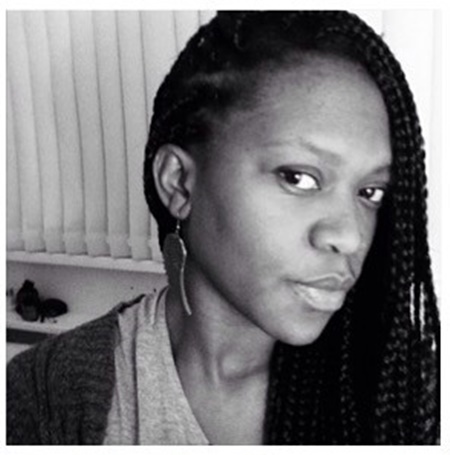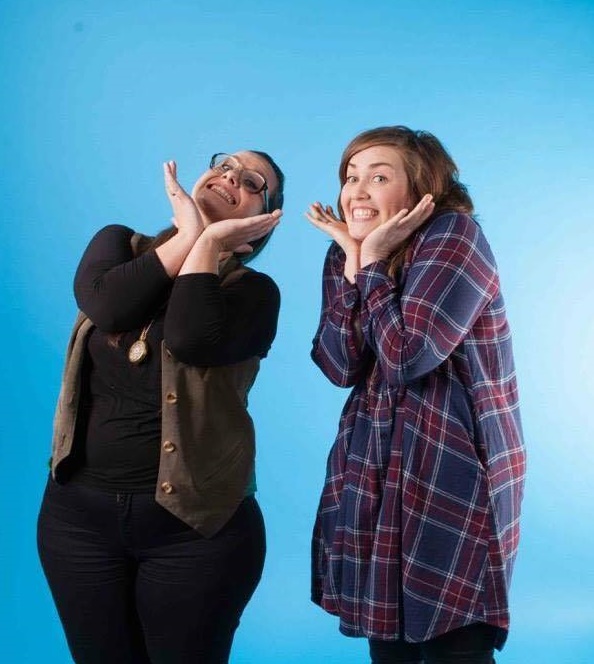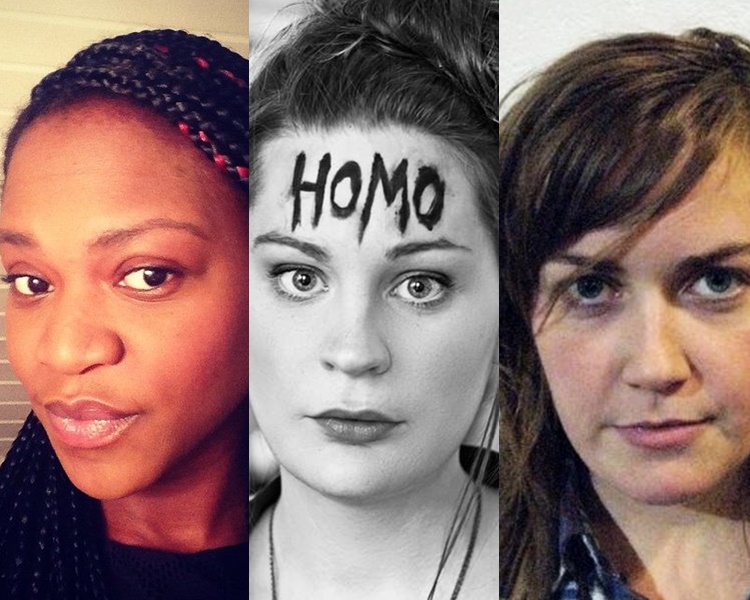With the upcoming Women’s Rights day on June the 19th GayIceland is bringing light to the issues of queer women. Reporter Lilja Katrín Gunnarsdóttir spoke to three very different women who shared their thoughts on feminism and queer rights.
No one is free while some of us are oppressed
Ugla Stefanía Kristjönudóttir Jónsdóttir has been extremely zealous the last few years in fighting for basic human rights for trans people in Iceland. She is also a feminist and believes that these two fights go hand in hand. She thinks that we all have to take part in the fight for rights of those who find themselves in minority groups.

Can you describe how it is to be a trans woman in Iceland today? “To be a trans woman in Iceland for me personally is much better than in many parts of the world. But there are however some shortcomings, obstacles and prejudice that people meet every day because they’re trans. On the whole we have taken decisive steps for trans people. But we have a long way ahead of us when it comes to ensuring that they have the same rights as others. Trans people still have to live with outdated codes of practice and trans children still live in a legal vacuum when it comes to health care. Opinions of doctors and specialists are still needed when names are changed and gender is registered. Trans people are still faced with a lot of prejudice in school, in the work place, when they look for housing, and within their family and personal relationships.”
Ugla has not only been outspoken on the issues of trans people in Iceland but has also traveled abroad to educate through lectures. How is the situation in Iceland for trans people compared to other countries? “Iceland has straggled a lot the past few years. In 2012 a law on health care was passed in Iceland which was nearly obsolete the day it was passed. We are way behind if we compare ourselves to our neighboring countries or countries that are well ahead legally speaking. Our laws are outdated, based on stereotypes and completely exclude non confirmative trans people.”
You’re not only a fighter for trans rights. You are also a feminist. How is it to combine the two? “Personally, I’m doing great in combining the two because the fight for equality is inwrought in many ways. I feel that we can’t take a close look at equality or work by feminist values without fully realizing the diversity of gender and gender identity. The battle for trans rights and queer rights is pretty much similar and interwoven with the feminist battle and I couldn’t separate the two. I’m doing great in combining the two battles but unfortunately not all feminists are at a place where they realize that it’s possible. I try to base my work from a intersectionality stand point which focuses on looking at the status of people and equality from a much broader perspective.
“The battle for trans rights and queer rights is pretty much similar to and interwoven with the feminist battle… I’m doing great in combining the two… unfortunately not all feminists realize that it’s possible.”
In many places around the world, especially in the US, there are feminists that have gone against the battle for trans rights. They exclude trans people and marginalize the group with their discourse. I can mention women like Sheila Jeffreys, Janice Raymond, Germaine Greer and Judie Bindel that have done just that. This doesn’t fit because they are provoking the trans people and their battle and don’t realize that they are taking part in marginalization and the discrimination of a group that is being taunted, violated and oppressed every day in various parts of the world.”
How can we make sure that doesn’t happen in Iceland? How can we combine the issues these two groups, trans people and feminists, are fighting for? “Trans Ísland has collaborated with both the Icelandic feminist society and the Icelandic society for women rights. That collaboration started last year on November 20, the Memorial day for trans people. These three organizations put together a symposium about the connection between trans issues and feminism. The symposium was a success and is probably the beginning of dialogue between these movements which I believe will be a fruitful one.
It’s important that we look at all our infrastructure and that we look at things from a critical point of view. It’s important that we depart from dualism and put an active question mark on the gender system and realize how harmful it is. That means the fight of trans people, of disabled people, of queer people, of different classes, the fight against prejudice and marginalization is our fight, every ones’s fight. No one is free while some of us are oppressed and marginalized. We can’t leave anyone behind.”
Empowering to be a woman in Iceland
Angel Buns P’ojara hails from Uganda, a country where homosexuality is punishable by law and where the LGBTI community has no legal protection. Since Angel is a lesbian, she left the country a few years ago and moved to Iceland. She says she feels a lot safer here and doesn’t fear for her life on a daily basis any more. She celebrates the fight for women’s rights in Iceland which has in a way made it easier for her to mix with Icelandic society.

How is it different to be queer in Uganda and Iceland? “Well for one, being queer in Iceland means peace of mind, no worries about persecution for being who you are. You mention that you are gay and nobody thinks twice about it. It’s as normal as eating, drinking or breathing (for most). I did note that last year there was an outpouring of a few homophobes but it’s still not to the point that my life could potentially be at risk like in Uganda.”
Angel is not only a lesbian. She is also a black lesbian which makes her a woman who’s split between two minority groups in Iceland. How does that work out for her in? “Being a part of two minorities, while it could be difficult in many countries, it hasn’t been so for me here. In Iceland there is such a progressive fight for women’s rights and it is so empowering to be a part of such a society. That’s not to say it’s all roses but at least it’s recognizable that the fight for equal rights in Iceland is ongoing and there is hope.
The same can be said of sexuality. However race is still a sensitive subject that needs to be continually addressed. There is still a huge percentage of people who are closed-minded but I appreciate that a lot of Icelandic people also believe in “no racism”, like we saw with this years Eurovision and the case with Unnsteinn from Retro Stefson.”
“I would like to see a more bonded queer community. More social settings where queer women gather and share ideas.”
You talk about racism still being an issue in the Icelandic society but how has the Icelandic queer society welcomed you? “When I look back on how the Icelandic community welcomed me, I always refer to the fundraiser concert we had for Uganda at Harpa music hall, where hundreds of people showed up and donated money to Uganda to help with the LGBTI struggle. I am forever grateful to everyone that helped organize the event, all the artists and musicians that took the time to perform and all the people who showed up for such a good cause.”
The situation in Uganda for LGBTI is dire but are there any values or views from Uganda that queer women, feminists and the Icelandic society could learn from and master? “I suppose for values or views, I would like to see a more bonded queer community. More social settings where queer women gather and share ideas. This is happening at Samtökin ‘78 now on a small-scale but maybe more people could get involved. It’s very important for the community to be united and also be more aware of what is going on in the queer community around the world. Tragedies like the one that recently occurred in Orlando happen too often in too many countries and a lot of the time there is no media to cover them. Awareness and unity is key and that is what I would like the Icelandic community to know and act on.”
Let’s make girls stronger and boys more gentle
Sigríður Eir Zophaníasardóttir is a member of the two woman band Eva. Sigríður and her band mate, Vala Höskuldsdóttir, have described their music as feminist punk rock folk and don’t shy away from having political undertones in their tunes. Sigríður indeed believes that one of the secrets to world peace is feminism. She brands herself a feminist with pride and says that she will continue to do so until men and women are equal.

You and Vala have described your music as “a country based, melodic feminist pop-punk with a witty, folkie undertone”. To almost quote another strong woman, Tina Turner, what’s feminism got to do with it?
“Me and Vala have joked around with the fact that Eva isn’t only a band but also a performance group, a political movement and a self-help group because we just write music by accident. The root of our composing is always an issue or a matter, more often political, that we feel should have it’s own song. For example the song Who’s the man? which is about the obsessive need that people have to categorize lesbian couples and give them either the role of the female or the male. Most of our songs deal with an issue that we feel needs more attention or change. In that way we are a political movement as well as a band and I believe feminism is one of the big keys to world peace. Plenty of other intelligent individuals believe it too.”
With that said, why isn’t it enough for Sigríður to be an egalitarian. Why does she feel the need to brand herself a feminist? “These words are from a good book: “To be a woman is to walk around in too little shoes. To be a feminist is to understand why that happens and to educate others that it’s not the feet that are too big but the shoes that are too small.” (Píkutorfan, page 90). That’s the reason why I’m a feminist. I understand and know that women are viewed as lesser people and until women are equal to men we need to keep feminism alive. I hope and I pray that we can stop fighting in the name of feminism in the near future. Then we can all be egalitarians. We will sit down with our children and grandchildren and tell them about this ridiculous time when women weren’t equal to men.”
“I understand and know that women are viewed as lesser people and until women are equal to men we need to keep feminism alive.”
You and Vala speak very freely about being lesbians. Do you feel that’s important, for lesbians to be visible in society? “Yes, I think that’s very important. What the tragic event in Orlando has recently shown us is that we have a long way ahead of us and being seen is one of the tools we have at our disposal in the fight for queer rights. We’re just ordinary people. We are not more innocent than others, not more dangerous than others, not better nor worse. And we certainly should not be killed with impunity and neither should anyone else.”
Talking about the battle for equality, when it comes to women’s rights, what issue is closest to your heart? “What comes first to mind right now is sex-related violence. I hate it. We have to raise our children to respect and understand all human beings. We need to make our girls stronger but most of all we need to make our boys more gentle, allow them to feel emotions and teach them to know themselves. I think sex-related violence and the fight against that is the twin sister of the fight against manhood or the outdated ideas of macho men. Or, then again I don’t know. I don’t have the answer or the solution. I just want people to stop raping. I want lovers to stop systematically breaking down their spouse in the name of love in the privacy of their home. And I want people to be generally kind to one another.”


